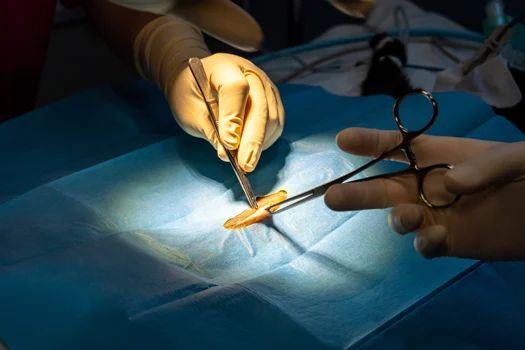Proper wound care is an integral aspect of recovery for patients recovering from surgeries involving the foot, ankle, or leg. A wound care specialist collaborates with surgeons and patients, using their expertise to promote recovery and reduce complications. Here is some information about these specialists’ methods and their impact on post-surgical wound management.
The Responsibilities of A Wound Care Specialist
A wound care specialist is a healthcare professional who focuses on evaluating, treating, and managing wounds caused by surgery, trauma, or chronic conditions. After surgery, their main goal is to assess wounds and create personalized treatment plans to promote healing. They often work closely with surgeons, physicians, and physical therapists to provide well-rounded care.
Their key responsibilities include checking for signs of infection, managing wound drainage, and choosing the right dressings. By monitoring a wound’s progress, they can spot potential problems like infections or improper healing early and take action. This expertise is invaluable for patients recovering from foot, ankle, or leg surgeries. These areas are more challenging to heal due to their complex structure and limited blood flow.
The Methods Used to Support Recovery
Wound specialists employ a variety of evidence-based techniques to support recovery and reduce complications. One of the key approaches involves choosing dressings that are specifically suited to the patient’s wound type. From hydrocolloid dressings for moist wound environments to antimicrobial coatings that reduce bacterial load, their expertise allows for proper application to support proper healing.
Advanced technologies like vacuum-assisted closure (VAC) therapy may also be used for specific cases. VAC therapy creates an optimal wound environment by applying negative pressure to the affected area, which promotes tissue growth and minimizes fluid buildup. This technique has been particularly effective in treating complex or chronic wounds.
Educational support for patients is another valuable aspect of their care. Specialists teach patients and their caregivers how to follow daily care routines. They also explain how to avoid activities that may stress the wound site. This education helps patients recognize early signs of possible complications. Specialists reinforce the role of self-care in the overall healing process.
The Collaboration Between Specialists and Surgeons
The recovery process often involves input from a team of specialists. Wound care experts work alongside surgeons to confirm treatment plans are consistent. They also help guide physical activity after lower extremity surgeries, making sure patients move carefully to avoid straining healing tissues. A team-based approach improves care as each professional brings their expertise to address concerns and support recovery.
The Benefits of Long-Term Wound Care
Effective wound management helps minimize scarring and reduce the risk of wound reopening. It also prevents the development of chronic wounds that may require further interventions. For patients with pre-existing conditions like diabetes, this care is especially important as it can protect against complications such as infection or delayed healing.
Patients who work with wound care professionals gain the knowledge and resources needed for long-term wound health. Lifestyle adjustments like managing blood sugar, maintaining hygiene, and wearing proper footwear play a key role. This guidance helps patients protect their surgical outcomes effectively.
A Path Toward Comprehensive Surgical Recovery
Integrating professional wound care into the recovery process fosters more personalized and effective healing experiences for individuals undergoing surgeries involving the foot, ankle, or leg. Their contributions work in harmony with advanced surgical techniques to support better outcomes, improved mobility, and enhanced quality of life for patients.
By placing a focus on wound management expertise and patient education, wound care specialists pave the way for thoughtful healing and reduced complications.
Recommended Articles





Leave a Reply